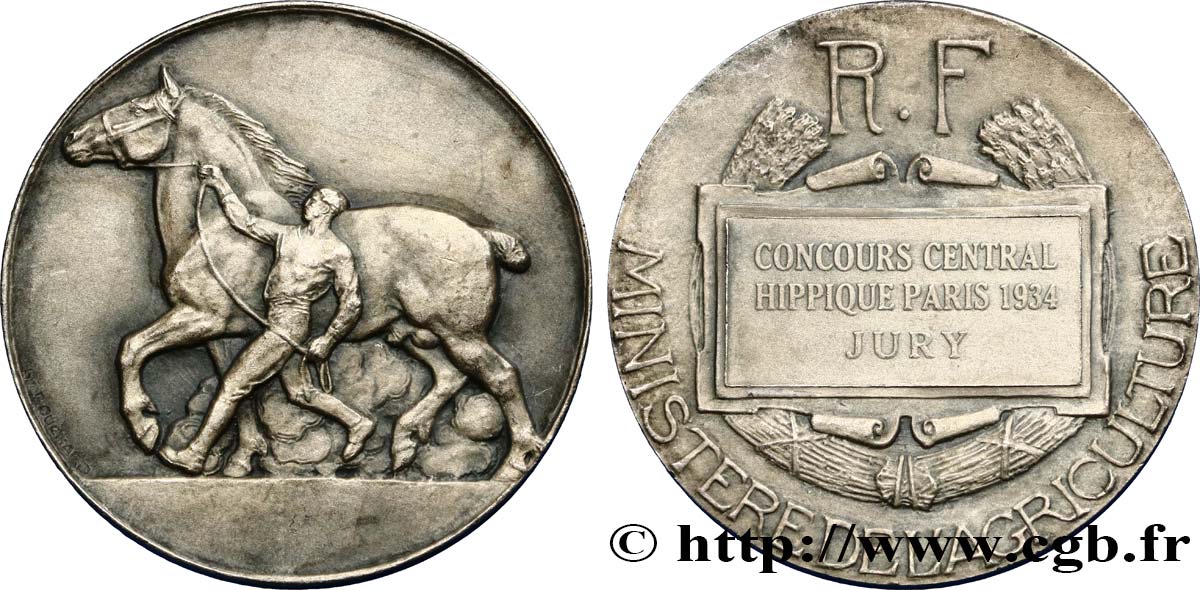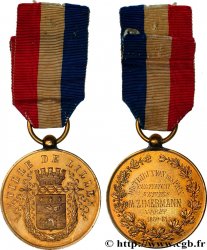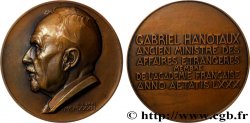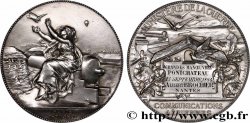fme_445139 - III REPUBLIC Médaille de récompense, concours central hippique
недоступный.
Товар уже продан в нашем интернет-магазине (2023)
Цена: : 180.00 €
Товар уже продан в нашем интернет-магазине (2023)
Цена: : 180.00 €
Тип Médaille de récompense, concours central hippique
Дата: 1934
Монетный двор / Город: 75 - Paris
Металл: silver
Проба: 850 ‰
Диаметр: 41 mm
Ориентация осей монеты: 12 h.
Гравер BOUCHARD Henri (1875-1960)
Вес: 36,1 g.
Век: lisse + Corne 2ARGENT
Пуансон: Corne 2 ARGENT
Комментарии о состоянии
Superbe médaille avec un avers très intéressant. Patine grise
Лицевая сторона
Аверс: легенда: ANÉPIGRAPHE.
Аверс: описание: Homme tenant un cheval en bride, à gauche.
Обратная сторона
Реверс: легенда: RF - MINISTERE DE L’AGRICULTURE // CONCOURS CENTRAL / HIPPIQUE PARIS 1934 / JURY.
Реверс: Описание: Légende en 3 lignes dans un cartouche rectangulaire posé sur deux gerbes de blé posées en couronne.
Комментарий
Le concours central hippique de Paris est une ancienne manifestation autour du cheval, créée en 1865. Elle est organisée au printemps dans le quartier des Champs Elysées, au Palais de l’Industrie, pendant un peu moins de 3 semaines et sous la houlette de la Société hippique française. À l'époque, le cheval est un animal utilitaire, qui sert au transport et comme animal de guerre, et joue de ce fait un grand rôle économique. Le concours central hippique de Paris rassemble 300 à 600 chevaux en moyenne, venus de toute la France. Il permet de voir des concours d'animaux et des exhibitions.
Henri Bouchard, né le 13 décembre 1875 à Dijon et mort le 30 novembre 1960 à Paris, est un sculpteur et médailleur français..
Henri Bouchard, né le 13 décembre 1875 à Dijon et mort le 30 novembre 1960 à Paris, est un sculpteur et médailleur français..








 Cообщить об ошибке
Cообщить об ошибке Распечатать страницу
Распечатать страницу Отправить мой выбор
Отправить мой выбор Задать вопрос
Задать вопрос Consign / sell
Consign / sell
 Информация
Информация



